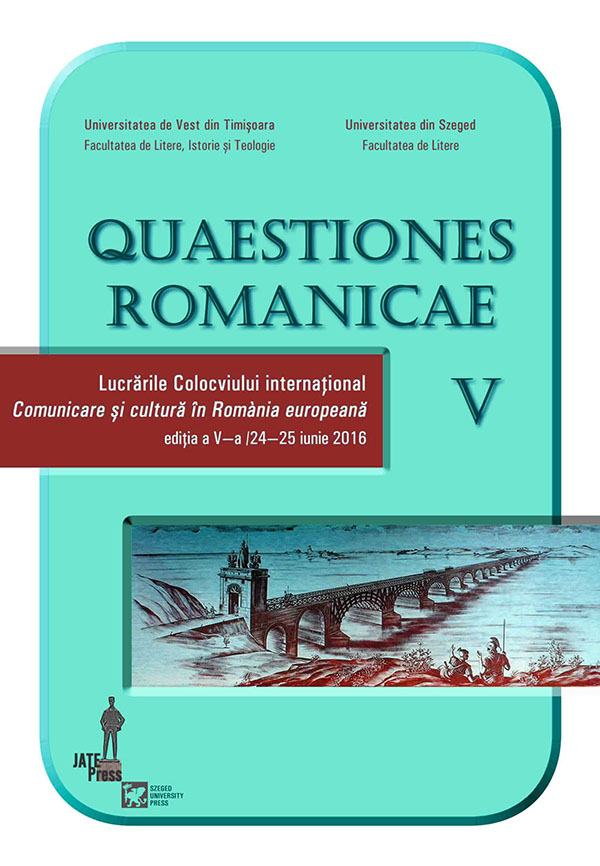Traducerea la cască sau supratitrarea - două metode eficiente de creștere a vizibilității teatrelor aparținând minorităților
Abstract: (The Simultaneous Translation or Subtitling – Two Efficient Methods of Increasing the Visibility of the Minorities΄ Theatres) The Romanian Revolution on December, 1989, opened new directions for the citizens who were eager to rebuild their lives abroad. Thousands scores of people left the country and produced a serious gap in the community of German minorities throughout Transilvania and Banat. The German State Theatre was founded in the 50s to preserve the German language, culture and the German tradition. It had by the end of the 80s a solid and numerous acting team, though its self-financing period imposed by the communist regime. It also managed to increase and maintain its audience until the beginning of the year 1989. The revolution did not only free the people from a totalitarian government, but also opened the borders to the Western Europe. Thus, almost half of the German actors left the German Theatre behind and rebuilt their lives in Germany, Austria or Switzerland. Suddenly, the remaining actors found themselves in front of a low numerical German audience. The idea of introducing the simultaneously translation system and then the subtitling system saved the German Theatre from its imminent crash. Again, the German Theatre survived a collapse and regained an audience that could see and understand the translated performances. Moreover, it became more and more visible among other theatres in Romania. Nowadays, The German Theatre classifies itself among the performant theatres in Romania, and won a lot of prizes at the national theatre festivals in the country.
Keywords: translation, simultaneosuly, surtitling, German State Theatre, minorities.
Rezumat: Revoluția din decembrie 1989 a creat oportunități multiple pentru cetățenii români dornici să-și construiască o nouă viață în afara granițelor țării. Astfel, zeci de mii de etnici români sau reprezentanți ai minorităților au părăsit în valuri România, lăsând în urmă un gol populațional care se va resimți mai ales în comunitățile sașilor sau șvabilor din Ardeal și Banat. Teatrul German de Stat din Timișoara, înființat în anii ΄50 din necesitatea păstrării limbii și culturii germane în rândul comunității șvabilor din Banat, avea la sfârșitul anilor ΄80 un colectiv solid din punct de vedere numeric. Greu încercat de perioada de autofinanțare impusă de regimul comunist, Teatrul German reușise să-și păstreze nu numai actorii, ci și publicul fidel de etnie germană. Odată cu revoluția din 1989 și odată cu exodul germanilor spre Germania, Austria sau Elveția, aproape jumătate din colectivul teatrului alege calea Occidentului, lăsând o echipă fracturată în fața unui public tot mai slab reprezentat. Ideea salvatoare de a implementa sistemul de traducere la cască, apoi de a adăuga sistemul de supratitrare, a facilitat creșterea numărului de spectatori vorbitori sau nevorbitori de limbă germană la spectacolele oferite de Teatrul German, cât și vizibilitatea acestuia în rândul teatrelor profesioniste din țară. În prezent, Teatrul German de Stat Timișoara se clasifică printre teatrele de performanță din România, cu numeroase premii obținute la festivalurile naționale.
Cuvinte-cheie: traducere, simultan, supratitrare, Teatrul German de Stat, minorități.
